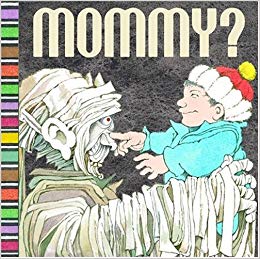Maurice Sendak, Still Popping Up
Listen to the Recess! Clip
| Author | John Cech |
| Air Date | 11/17/2006 |

Maurice Sendak Transcript
You’re hearing Jean Shepard reading the opening lines from one of the most important American picture books of the 20th century, Maurice Sendak’s Where the Wild Things Are. The Wild Things are turning 43 this fall, but they had already been around for awhile when Sendak first brought them to roaring, rolling, rumpussing life in 1963. In fact, Sendak had based these creatures on his relatives — uncles and aunts — who dropped by the Sendak household in the early 1930s and succeeded in terrifying young Maurice, kidding him with remarks like he was “so cute they could eat him up.” The wolf-child in the book is, of course, the young Maurice, who used to be called “Wild Thing” by his mother, on those days when their wills collided, just like those of the mother and little boy in the book.
Today, Where the Wild Things Are might seem almost tame, when compared to some of the books that are currently being produced for young children — including Sendak’s own new book, Mommy? — a dazzling, funny pop-up book about a little boy (who looks a lot like Max, Mickey and a dozen other Sendak boys) who outsmarts a houseful of classic monsters. Yet at the time it appeared in the early ’60s, Wild Things was a revolutionary statement, and, in many ways, it still is.
Not only did Sendak place a child’s emotional life at the center of the book, Sendak also gave Max’s tantrum and the fantasy Max himself creates to cope with it, a significance, a credibility that had never been explored before in a picture book. Then there is the way the pages open up to involve the reader, the intensely imagined reality of the pictures, the vibrant colors and unexpected shapes; the way time is compressed and simultaneously expanded, infinitely. We are within a myth that, in little more than a hundred words and a dozen pictures, tells us this: the power to imagine — that a child has, and that we adults may have forgotten that we still have — is what will always rescue us, no matter how young or old we are.